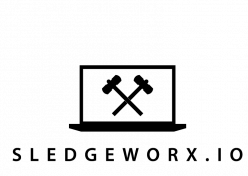I’ve been an avid twitter user for years, but had to stop this winter. I have been listening to ‘Deep Work’ while driving cross country and have done a lot of thinking about how to do better work. One of the things recommended in the book is to quit social media or at least exclude it from the part of your day when you work. I’ve typically just blocked twitter from my network during the workday then used it as much as I wanted afterwards.
Well another thing I did in the pursuit of ‘deep work’ is to review my Qbserve stats for the last few months. My twitter numbers were way higher than I expected. I have been spending thousands of dollars worth of time using Twitter producing fun content that twitter then monetizes. I could have gotten a part time job or learned to paint.
Track your time. There are a bunch of apps that can do it. I use Qbserve because it stores data locally and felt like a less heavy weight solution. I have also used RescueTime, but found logging in again when I need to restart tracking to be a pain.
Once you have tracking going it gives you a lot of insight into what you are doing on your computer. Some people might think “ah, if I’m on the computer I’m working, what else would I use it for” but for millennials and digital natives who spend most of their lives on a computer it can really help.
For example I know how much clock time I spent reading Xianxia, translated chinese pulp fiction, on wuxiaworld.co this year, four whole days. That is nearly double the amount of time I spent on news.ycombinator.com which came in at 1 day and 13 hours. I also know how much time I spent writing, note taking and journaling this year, around 30 hours so far. Admittedly, I haven’t run the app 24/7 and didn’t start until March so I only have around 8~ months worth of data.
I don’t think I would have made the realization of how much time I was spending on twitter, without a time tracking app. It is a lot like Television for normal people, it is just on all the time when you are home, you don’t really think about it’s effects on your life. Most people underestimate how much time they spend watching television, but you don’t have to underestimate how much time you spend on Youtube, just get Qbserve and review the data occasionally.
In the week or so since I quit, I’ve already read a couple books and started writing on my blog again.
